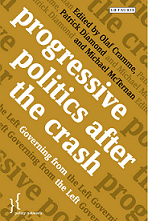Petralias, A., Petros, S. and Prodromidis, P., (2013), “Greece in Recession: Economic predictions, mispredictions and policy implications”, Hellenic Observatory Papers on Greece and Southeast Europe, GreeSE Paper No.75, Σεπτέμβριος. We look into the available macroeconomic figures and the predictions made about the recession in Greece by international organizations, Greek research centers, and the Greek government; and suggest that the predictions regarding the decline in real GDP in recent years were …Read More
Elections to the European Parliament and the trouble with vox populi
Piedrafita, S., (2013), “Elections to the European Parliament and the trouble with vox populi”, European Policy Institutes Network, No.22, 22 Αυγούστου. Declining support for the European Union in many member states is causing some disquiet about the possibility of an even lower voter turnout in the upcoming European Parliament (EP) elections to be held next May. This discontent might well be exploited by populist anti-European parties and boost protest-vote participation, …Read More
Enhancing the global financial safety net through central-bank cooperation
Truman, E.W., (2013), “Enhancing the global financial safety net through central-bank cooperation”, www.voxeu.org, 10 Σεπτεμβρίου. Should we expect more global financial crises? This column argues that we should. Global financial crises are far from being a thing of the past because they are often caused by buildups of excessive domestic and foreign debt. To successfully address them and to limit negative spillovers, we need coordinated actions that prevent a contraction …Read More
Progressive Politics After the Crash: Governing from the Left
Cramme, O., Diamond, P. and McTernan, M. eds., (2013), Progressive Politics After the Crash: Governing from the Left, London: I.B. Tauris & Co Ltd. Those who hoped the collapse of financial markets would usher in the end of neoliberalism and rehabilitate support for traditional social democratic policies programmes have been disappointed. It is not only the irrationality of markets which is the focus of public discontent, but the inefficiency of …Read More
Credit rating agencies and the Eurozone Crisis: What is the value of sovereign ratings?
Gaillard, N., (2013), “Credit rating agencies and the Eurozone Crisis: What is the value of sovereign ratings?”, www.voxeu.org, 9 Σεπτεμβρίου. Credit rating agencies didn’t anticipate the Eurozone Crisis and their ratings have been procyclical ever since. This column discusses research on the agencies’ recent performance. Since 2009, credit ratings have persistently lagged behind market spreads, suggesting that ratings have been more lenient with respect to Eurozone countries than generally believed. …Read More
Η ελληνική οικονομία και η απασχόληση
INE/ΓΣΕΕ, (2013), “Η ελληνική οικονομία και η απασχόληση”, Ετήσια Έκθεση. Η εντεινόμενη οικονομική κρίση και ύφεση μετά το 2009, σε διεθνές, ευρωπαϊκό και ιδιαίτερα Μεσογειακό και ελληνικό επίπεδο με τη σοβαρή μείωση της παραγωγικής δραστηριότητας, την διακοπή χορήγησης δανείων από τις τράπεζες, τη μείωση των επενδύσεων από το κράτος και τις επιχειρήσεις καθώς και τον περιορισμό της ζήτησης από τους καταναλωτές (μείωση μισθών, συντάξεων και αύξηση της φορολογίας), αναδεικνύει με …Read More
Sovereign default risk and banks in Europe’s monetary union
Uhlig, Η., (2013), “Sovereign default risk and banks in Europe’s monetary union”, www.voxeu.org, 5 Σεπτεμβρίου. EZ banks are more exposed to their own nation’s government bonds than ever. This column argues that Eurozone members can now afford to tell their banks to diversify, but pressure from Germany, Austria, France and the ECB might be necessary. Defusing the pernicious entanglement between the Eurozone’s weak banks and weak sovereigns would reduce the …Read More
Low for how long? Estimating the ECB’s “Extended Period of Time”
Bletzinger, Τ., Wieland, V., (2013), “Low for how long? Estimating the ECB’s “Extended Period of Time”, www.voxeu.com, 5 Σεπτεμβρίου. The ECB has promised to keep interest rates low for an “extended period of time”. In a broad hint to the profession, President Draghi stressed a reasonable forecast of this period could be extracted from a monetary policy reaction function. This column presents one such forecast based on published macro forecasts …Read More
The Birth of Fiscal Unions
James, H., Siegel, J., (2013), “The Birth of Fiscal Unions”, www.project-syndicate.org, 5 September. Fiscal unification is often an effective way to enhance creditworthiness, and it may also create a new sense of solidarity among diverse peoples living within a large geographic area. For this reason, Europeans have often looked toward the model of the United States. But they have never been able to emulate it, because their motivations for union …Read More
Give Greece a break: what politicians need to tell German voters
Chrysoloras, N., (2013), “Give Greece a break: what politicians need to tell German voters”, The Guardian, 5 Σεπτεμβρίου. One of the most hotly debated issues in Germany in the runup to the elections is the future of Greece. But, unfortunately, what we mostly hear is the terrible noise of populism and there are hardly any voices of reason. People have started throwing numbers around in the most irresponsible and incomprehensible fashion, without any …Read More





